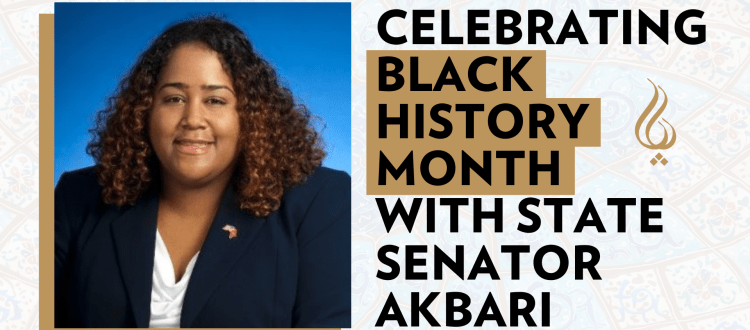Celebrating Black History Month with Tennessee State Senator Raumesh Akbari
Washington, DC — Earlier this month, PAAIA reached out to Tennessee Senate Minority Leader Raumesh Akbari to discuss the intersectionality of her Black and Iranian identities and the roles they played in her run for office.
Senator Raumesh Akbari has not only blazed trails in Tennessee politics but has also become a symbol of the diverse tapestry of American identity. The Senator made history in 2013 as the first Iranian American elected to the Tennessee State Legislature, representing District 91 in the House of Representatives. She currently serves as Tennessee Senate Minority Leader representing Senate District 29. In 2021, she achieved another historic milestone by becoming the first Black woman to chair the Senate Democratic Caucus in Tennessee.
As the Senator continues to break barriers for both the Black and Iranian communities, she was kind enough to take the time to share with PAAIA the intricacies of her heritage and how they have influenced her political journey.
“Being black and Iranian is so very much a part of who I am,” Senator Akbari expressed. “Representing those two different cultures was very important for me to keep at the forefront when I ran for office.”
The Senator’s father came to the United States from his home country of Iran in the late seventies while her mother was born in Memphis, Tennessee – the area that Senator Akbari now represents. “Memphis is obviously 67 percent Black,” she stated. “That’s a larger demographic, but we have a pretty vibrant, though small Persian community in Memphis and in the state of Tennessee as well.”
Noting the similarities between her parents despite their cultural differences, the Senator explains how the rich traditions and history of Africa colliding with the tremendous legacy of the Persian Empire can be extremely powerful. “My black identity and my Iranian identity intersect because we are both minorities,” she explained. “We have this shared culture of struggle, but we also have this shared culture of triumph and beauty.”

Senator Akbari has been actively engaged in her community since earning her Juris Doctor in 2009. She serves in a variety of roles outside of her duties as State Senator including as National First Vice President of the National Organization of Black Elected Legislative Women (NOBEL Women), Treasurer of the National Black Caucus of State Legislators, Tennessee Co-Director of Women in Government, as well as a Board Member of several organizations. She was even named one of seventeen speakers to jointly deliver the keynote address during the 2020 Democratic National Convention.
“I think it’s important for all people to be civically engaged,” Senator Akbari emphasized. “You know, there’s an expression: if you don’t have a seat at the table, you’re on the menu.”
The Senator underscored the importance of civic participation, especially for Iranian and Black Americans. “You have people who are making decisions for you, who are in elected office, who may not represent your beliefs, have not walked in your footsteps, do not understand the needs of your community,” she explained. “If we don’t show up and vote, our voices are left out.”
In celebrating Black History Month, Senator Akbari’s story serves as a beacon of hope and inspiration, reminding us of the power of diversity and the importance of inclusive representation in shaping our collective future. Whether we are interested in climate control, reproductive rights, education, or the economy, the Senator points out that civic engagement allows us to make a difference and create our own legacy. She encourages Black and Iranian American youth to find out what’s important to them and get involved.
“This is your country too. You define what it looks like. You define your experience.”
About PAAIA: PAAIA is a nonprofit, nonpartisan, nonreligious organization that serves the interests of Iranian Americans and represents the community before U.S. policymakers and the American public at large. For more information about PAAIA, you can visit our website at paaia.org


